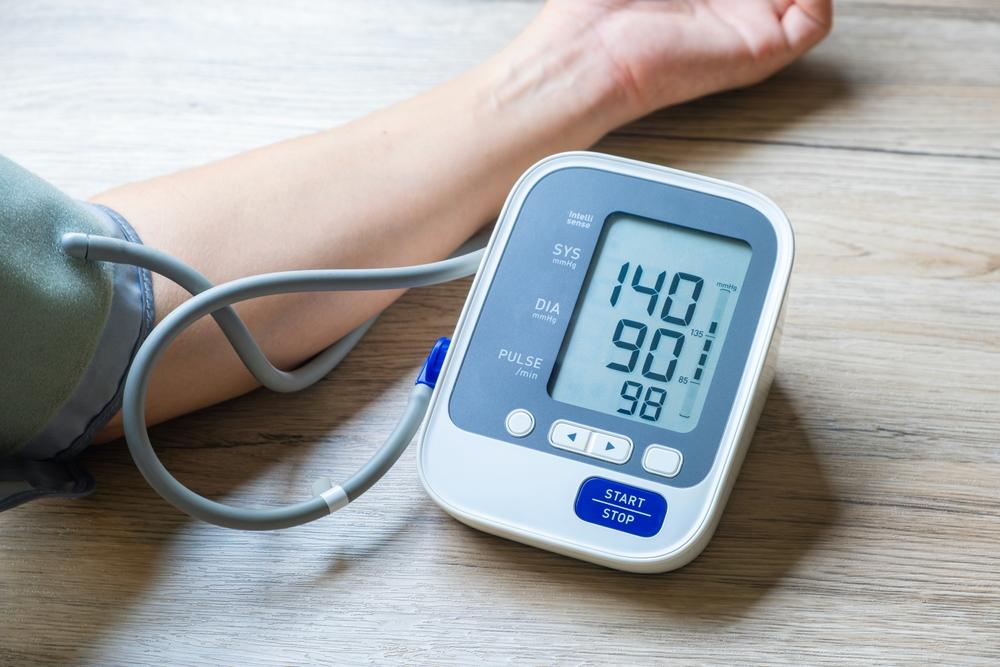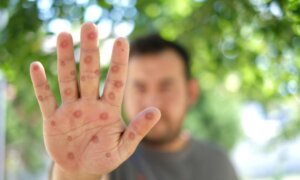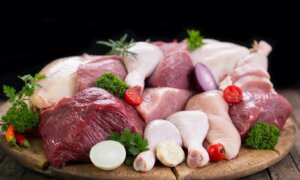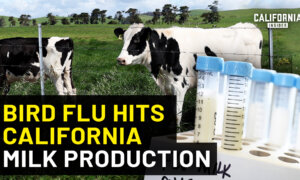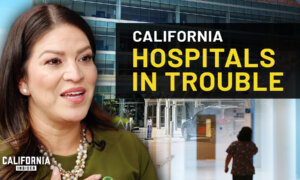Consuming too much salt can lead to high blood pressure, increasing the risk of heart disease and stroke. During an interview with NTDTV’s “Health 1+1” program, Zhang Weijun, a nutritionist at Taiwan’s Koii Nutrition Consultation Center, explained how to implement the dietary approaches to stop hypertension (DASH) diet to reverse high blood pressure and shared tips on how to cut down on salt at home and when dining out.
Described as the “silent killer,” hypertension is usually not apparent and is difficult to detect without regular checkups. By the time serious symptoms such as severe headaches occur, the problem may be advanced.
Salt’s Effect on Blood Pressure
Zhang said that reducing salt intake can help control blood pressure. Salt contains sodium, an essential mineral. However, excessive sodium can lead to
water retention, increasing the fluid in the blood vessels and, thus, intravascular pressure. Long-term high-salt diets can damage cardiovascular and renal functions and can also aggravate hypertension.
He recommended eating fewer salty foods, including pickled and processed foods. These might include pickled vegetables, hot dogs, cured meats, dumplings, canned foods, instant noodles, bread, bagels, processed cheese, biscuits, and so on.
Tips for Reducing Salt When Cooking at Home
First, beware of added salt on ingredient labels.
One gram (0.04 ounce) of salt contains 400 milligrams of sodium. Zhang mentioned that Taiwan’s Ministry of Health and Welfare recommends a daily intake of no more than 2,400 milligrams of sodium, about 6 grams (0.2 ounce) of salt, or ½ tablespoon. The sodium content in natural foods is equivalent to about 1 to 2 grams of salt, so when cooking at home for all three meals, we should limit the amount of added salt to less than 4 grams (0.16 ounce), or about 1 teaspoon. It is also worth noting that other condiments, such as soy sauce, black vinegar, pepper, salt, and others, also contain sodium.
Second, switch to natural seasonings.
If you like the taste of salt in food but want to cut down, you can cook with low-sodium salt or use natural spices, such as onion, ginger, garlic, pepper, coriander, celery, and others, which are flavorful and rich in phytochemicals and good for your health.
Other options are rosemary, bay leaves, basil, thyme, oregano, cinnamon, sage, etc. Substituting these seasonings can reduce the amount of sodium while adding flavor to the food.
Tips for Reducing Salt When Dining Out
The following tips will help you cut salt while eating out or purchasing food on the go:
- Avoid soups, vegetable juice, and marinade because the amount of salt in them usually goes beyond the standard level.
- Avoid ordering items you know will come packaged or processed, as they are often high in sodium due to added seasoning and preservatives for flavor and extended shelf life.
- If you have no choice but to rely on packaged or microwaved food, read the labels. Try to choose foods with a sodium content of less than 500 milligrams per 100 grams (4 ounces) or those with a low-sodium label, limiting your daily sodium intake to no more than 2,400 milligrams.
Foods That Help Stabilize Blood Pressure
More potassium intake can help the body excrete excess sodium and help inhibit the rise in blood pressure. Zhang recommended the following types of high-potassium foods:
- Dark Vegetables: Vegetables with high potassium content include amaranth, spinach, water spinach, enoki mushrooms, peas, chrysanthemum, and burdock, which should be eaten on a regular basis. However, as potassium can leach into the water during cooking, it is recommended to stir-fry or blanch the vegetables quickly and not overcook them.
- Nuts: Nuts are usually rich in potassium, but some nut products on the market are seasoned with salt, so it is recommended to choose the unsalted version.
- Fruits: Fruits like durian, sugar apple (sweetsop), plantain, banana, peach, kiwi, longan, cantaloupe, papaya, cherry tomatoes, cherries, dates, passion fruit, dragon fruit, strawberry, and coconut are all rich in potassium.
Zhang recommended eating at least 1.5 cups of cooked vegetables and two fist-sized fruits every day. Note that you should increase your intake gradually and measure your blood pressure regularly in the morning and evening every day.
How to Follow the DASH Diet
Zhang said the
DASH diet is a healthy eating regimen that helps prevent high blood pressure and lowers cholesterol. It can also provide trace minerals such as potassium, calcium, and magnesium. The DASH diet includes vegetables, fruits, whole grains, fat-free or low-fat dairy products, fish, poultry, legumes, and nuts. It limits foods high in sodium, sugary drinks, desserts, and foods high in saturated fat.
Whole Grains and Starches
The DASH diet recommends consuming 1 ½ to 2 cups of sweet potatoes, yams, taro, brown rice, and multigrain rice every day. For example, you could have ½ cup of sweet potatoes for breakfast and 1 cup of multigrain rice for lunch.
Protein
Eating more white meat such as fish, seafood, and chicken instead of red meats like pork, beef, and lamb is advised. Plant proteins such as organic tofu, beans, and soy milk can also help lower blood pressure. For these proteins, it is recommended to have a palm-sized portion at one meal.
Vegetables and Fruits
The DASH diet recommends eating more vegetables and fruits. About 2 ½ cups of cooked vegetables and five fist-sized portions of fruit daily are the right amounts. However, Zhang emphasized that if you are diabetic, to prevent blood sugar from rising too rapidly, it is recommended just to eat two fist-sized portions per day and see how the changes in blood sugar go before deciding how to adjust.
Dairy
The DASH diet recommends drinking 2 to 3 cups of low-fat milk daily.
Fats
The DASH diet suggests cooking with vegetable oils and limiting nuts to about a palmful daily.
Zhang said that in addition to lowering blood pressure, maintaining a healthy diet can help improve body composition, blood sugar, and blood lipids and enhance mental and overall health.
A randomized controlled trial published in the Journal of the American College of Cardiology in 2021 found that combining the DASH dietary pattern with reduced sodium intake reduced subclinical heart damage, including injuries and strains, while the DASH diet alone reduced inflammation.
Is Coffee Dangerous for People With Hypertension?
Some
studies have suggested that patients with severe hypertension who drink two or more cups of coffee a day may double their risk of dying from cardiovascular diseases such as heart disease or stroke. However, green tea or just one cup of coffee does not have the same effect.
Zhang said coffee has more caffeine than green tea, so people who are sensitive to caffeine and drink two cups of coffee a day may experience heart palpitations and rapid heartbeat. According to research, patients with high blood pressure who drink one cup of coffee every day or switch to drinking tea should not have a problem.
Zhang added that we should not be too worried about the results of these studies and need not jump to conclusions because these studies did not rule out potential conflicting factors. In other words, they may not have considered the underlying conditions of the individuals being analyzed. For example, people who drank two cups of coffee may be those who tried to compensate for their inadequate sleep, exhaustion at work, or eating an unhealthy diet. Numerous factors may put them at a higher risk of cardiovascular disease, and it is not suggested that coffee alone is what raised their risk.
